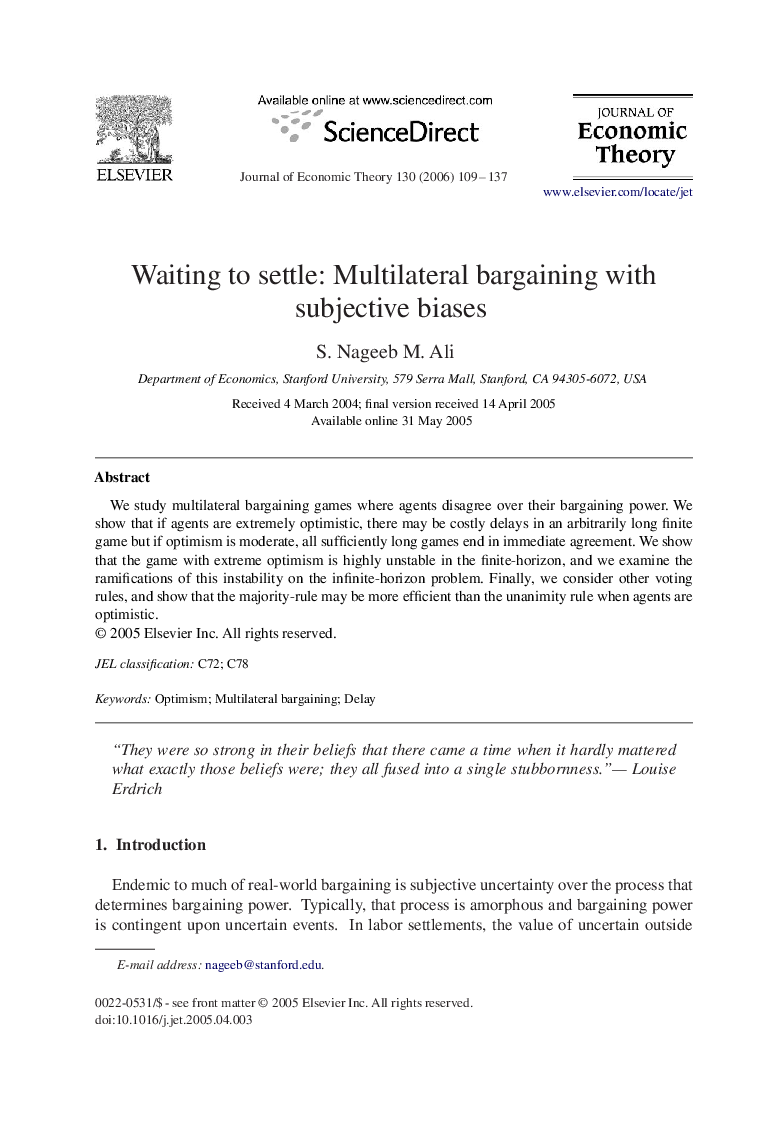| Article ID | Journal | Published Year | Pages | File Type |
|---|---|---|---|---|
| 957766 | Journal of Economic Theory | 2006 | 29 Pages |
Abstract
We study multilateral bargaining games where agents disagree over their bargaining power. We show that if agents are extremely optimistic, there may be costly delays in an arbitrarily long finite game but if optimism is moderate, all sufficiently long games end in immediate agreement. We show that the game with extreme optimism is highly unstable in the finite-horizon, and we examine the ramifications of this instability on the infinite-horizon problem. Finally, we consider other voting rules, and show that the majority-rule may be more efficient than the unanimity rule when agents are optimistic.
Keywords
Related Topics
Social Sciences and Humanities
Economics, Econometrics and Finance
Economics and Econometrics
Authors
S. Nageeb M. Ali,
